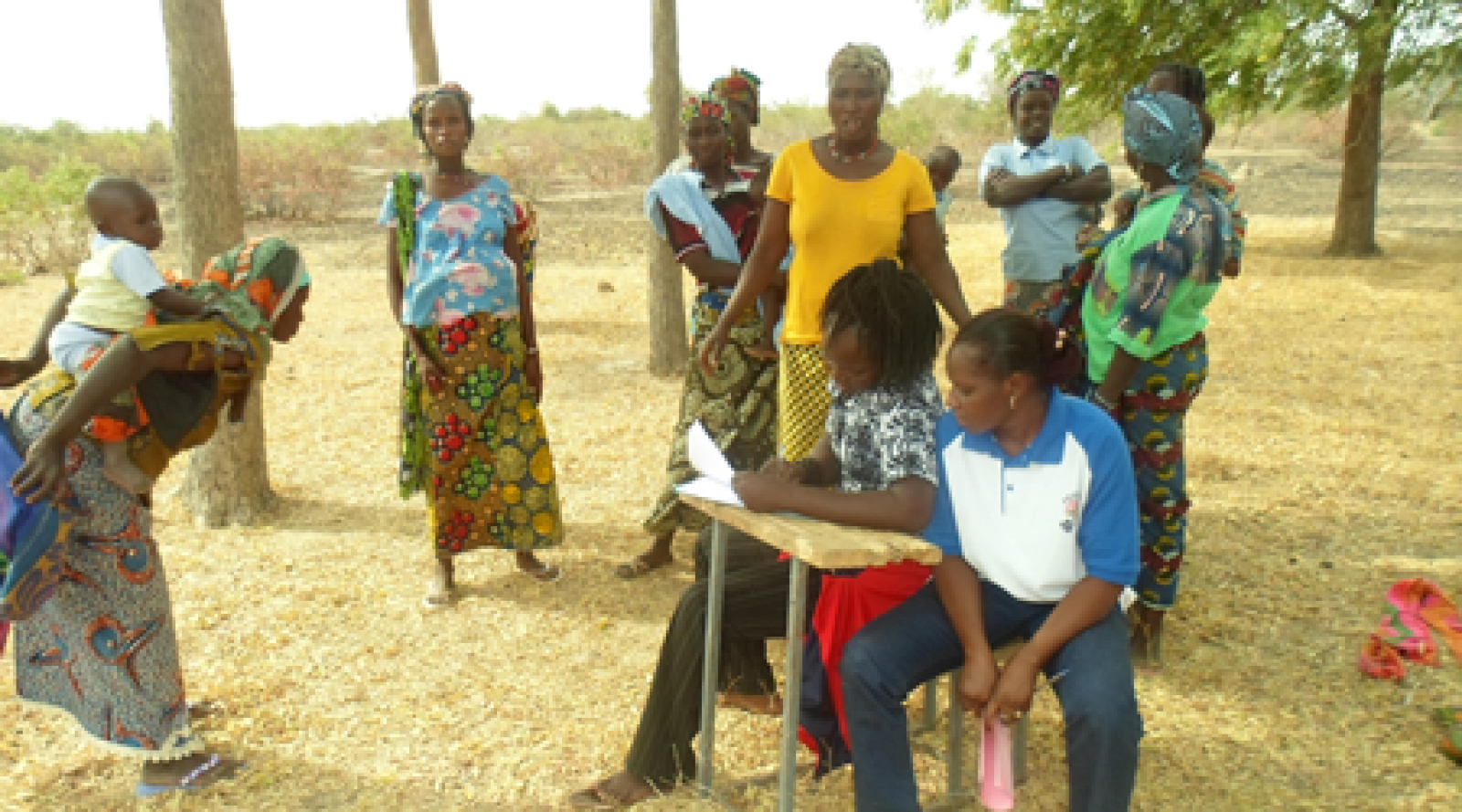
SHARE
What does electricity mean for women in rural Burkina Faso?
For Tankaoano Minata, a midwife from the village of Namoungou in this West African nation, one of the poorest in the world, it means delivering newborns into a brighter world.
“The authorities finally supplied the Namoungou health center with electricity. We no longer have births by flashlight,” Minata said.
That change was the culmination of a six-month advocacy effort by the Association Todi Yaba, a local civic organization and NDI partner. The group set out to gauge what issues the community was most concerned about so it could work with local government to address the highest priorities.
Todi Yaba used a “community scorecard” with which citizens rated the performance and responsiveness of such local services as health care, education or infrastructure improvements. The group also developed a questionnaire for individual interviews and discussion guides for focus groups to collect data on people’s satisfaction with the services they were receiving and which services they would like to see provided in the future. In Namoungou, the issue that rose to the top was poor health care generally, and a lack of electricity at the community’s health clinic specifically.
Once the priority issues were identified, Todi Yaba went to local authorities and worked with them to create a plan to improve health services, starting with electrification. With town hall meetings, workshops and radio programs, the group brought together residents and local government representatives to work toward common goals.
Since December, the Institute has worked across the country with civic groups like Todi Yaba on campaigns to improve the local services each community deemed its highest priority. In the rural town of Orodara, in the western part of the country, NDI partnered with the Club Jeunesse Solidarité (CJS), which found that citizens were frustrated by a lack of medical supplies at their community clinic. In this case, electricity wasn’t lacking but basic medicines and supplies were replenished so infrequently that illnesses and injuries couldn’t be properly treated. Once the problem was identified, CJS worked with citizens and local government to increase the frequency and amount of medical supply deliveries.
“In only a few months, everyone has come together to resolve the problems that we face in our health care sector,” noted N’do Oumar, head doctor of Orodara.
In Loumbila, a town in central Burkina Faso, NDI embarked on a similar campaign with the Association Manegdbzanga (AM). In this instance, the community chose education as its top priority, citing specifically the lack of regular monitoring of teachers’ performance. Some teachers weren’t coming to work regularly or weren’t teaching when they did show up. AM has been working to involve parents and school administrators in monitoring teachers’ attendance and performance, and school administrators now hold regular meetings with parents to discuss student and teacher attendance and performance.
NDI’s program in support of women’s empowerment in Burkina Faso is funded by the Swedish International Development Cooperation Agency (Sida).
Read more:
- Journalists Seek to Avoid Gender Stereotypes in Burkina Faso»
- Candidate Schools Help Women in West Africa Compete and Win»
- Burkina Faso Campaign Brings 16,000 Women Closer to Voter Registration»
Published Sept. 17, 2013


